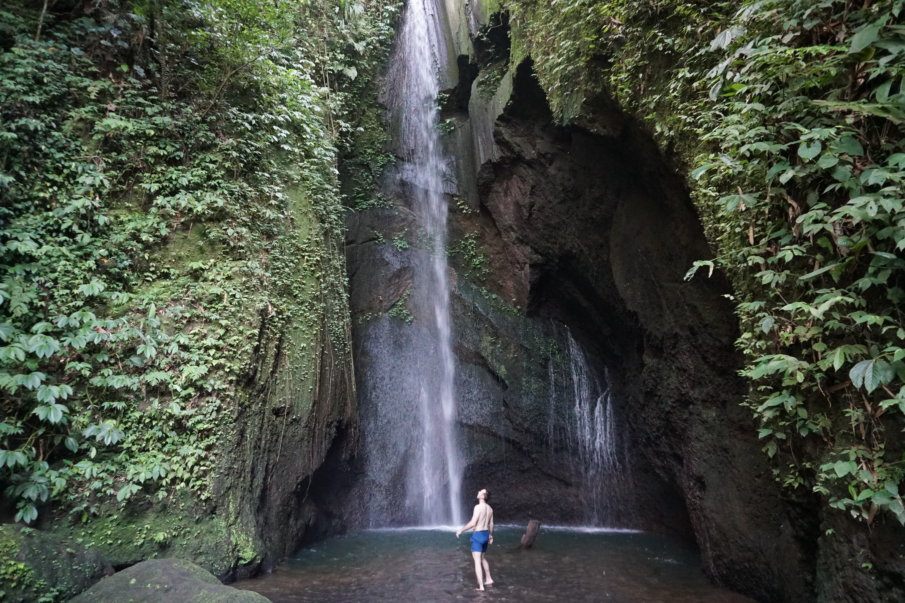In our age of social media envy farms, the lesser traveled are mired in the fear of missing out. The swelling chimera of edits and exaggerations make the untraveled regret their planted ways. I recall an amusing if detached list of 30 places to see before turning 30, perhaps written by someone neither with student loans nor experience with American PTO policies. I asked Google how many Americans hold a passport. A flood of feigned disbelief ensued, followed by the travel milieu’s breathless pleadings — often while jeering at the townies who’ve never gotten out of Dodge — to see, explore, and adventure. Though I am a full-time traveler these days, I find no value in travel for its own sake. The untraveled need not feel less complete for their rootedness; the only shame is to fail to pursue personal growth.
The poet Ausonius asked, “Quod vitae sectabor iter?” [What path of life shall I pursue?] As a devotee to the Socratic dictum, I would answer: towards self-knowledge and self-improvement. Insofar as these are proper ends in themselves, travel may serve as one of many means to achieve the examined life. One cannot know the self (if there even be one) if he does not know others, for what is self-knowledge independent of one’s existential context? To understand oneself in relation to the world is as personally relevant as was the revelation of heliocentrism for humanity. Travel has a certain way of challenging the solipsistic tendency.
However, books also exist, and information is widely available by which one may arrive at a richer understanding of the borders, languages, and cultures of the world. “For one who reads, there is no limit to the number of lives that may be lived”, said Louis L’Amour. Ask yourself whether the geographically static lives of Kant, Proust, or the chairbound Hawking were more or less vegetative than the wayfaring masses of the Mongol, Napoleonic, or American armies.
Paradoxically, travel may be the subconscious drive to avoid the inevitable pain of self-improvement. As I continue pursuing the peripatetic life, the words of the 17th-century scientific and philosophical savant Blaise Pascal weigh heavily on me. In his most famous philosophical work The Pensées, Pascal reflects on the role of diversion in human life:
When I have occasionally set myself to consider the different distractions of men, the pains and perils to which they expose themselves at court or in war, whence arise so many quarrels, passions, bold and often bad ventures, etc., I have discovered that all the unhappiness of men arises from one single fact, that they cannot stay quietly in their own chamber. A man who has enough to live on, if he knew how to stay with pleasure at home, would not leave it to go to sea or to besiege a town. A commission in the army would not be bought so dearly, but that it is found insufferable not to budge from the town; and men only seek conversation and entering games, because they cannot remain with pleasure at home.
What a damning insight! To what degree am I unable to sit quietly alone in my room. Would I also reveal a preference for electric shock to that of solitude like the subjects of a study who rather confirmed Pascal? It has been an important exercise for me to question why I am more comfortable on the move than planted in place.
But the life of the mind and that of the body are separate and distinct. Though one moves, one may be more happily alone in his proverbial room than ever. Insofar as the goal of life is to achieve self-knowledge and thus self-improvement, travel serves as a conduit to more efficiently deliver mental clarity, a Jungian enantiodromia effect which renders one in simultaneous flux and repose. But I recognize this is my preference, and there are other avenues to equanimity. That one must travel in order to know oneself is an idea advanced by the intellectually bankrupt and spiritually shallow whose meaning is made more through outside events than by nursing a resplendent inner life.
How much wisdom was ever earned on the edge of a caldera? The pensive look into the expanse should be matched in intensity by one’s intellectual miradouro. Friedrich’s Wanderer above the Sea of Fog was a metaphor, rather unlike the travel pornographers of Instagram who seem to be ever on the run both in body and mind. Travel for its own sake is the pedesis of the subatomic world. Though I fall painfully short, I fix my sights on traveling far and wide in intellectual pursuits, climbing the highest summits of the mind, and exploring the valleys and peaks of emotion.
To the lesser traveled, don’t be bullied into guilt, a feeling which ought to be reserved only for the failure to seek self-improvement. Towards that end, travel is merely a means.
